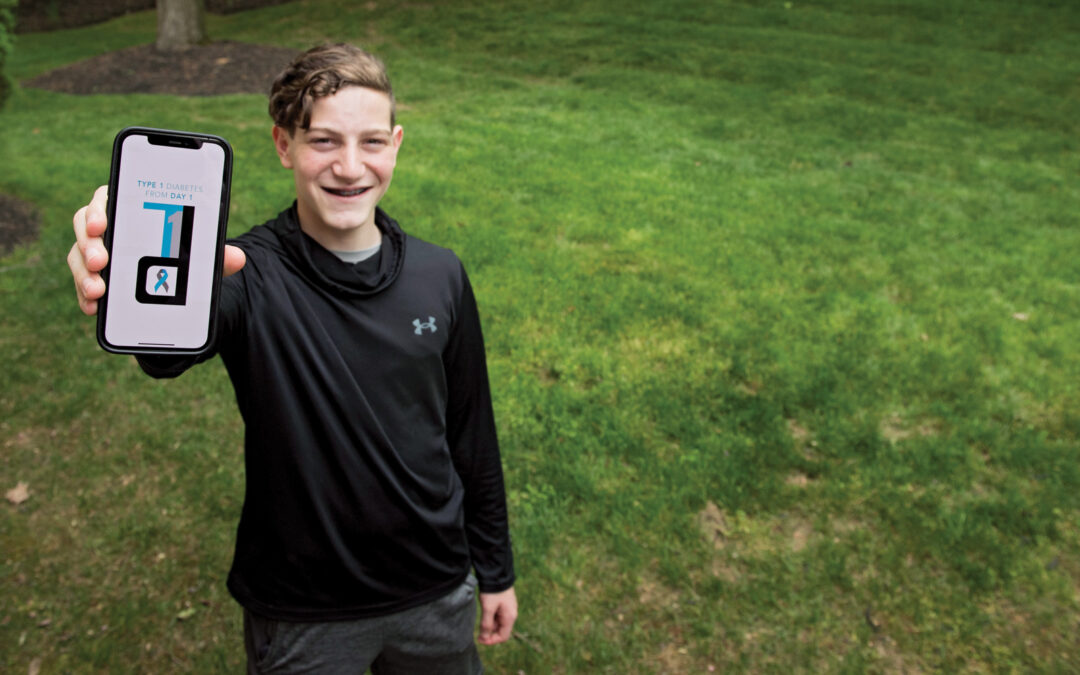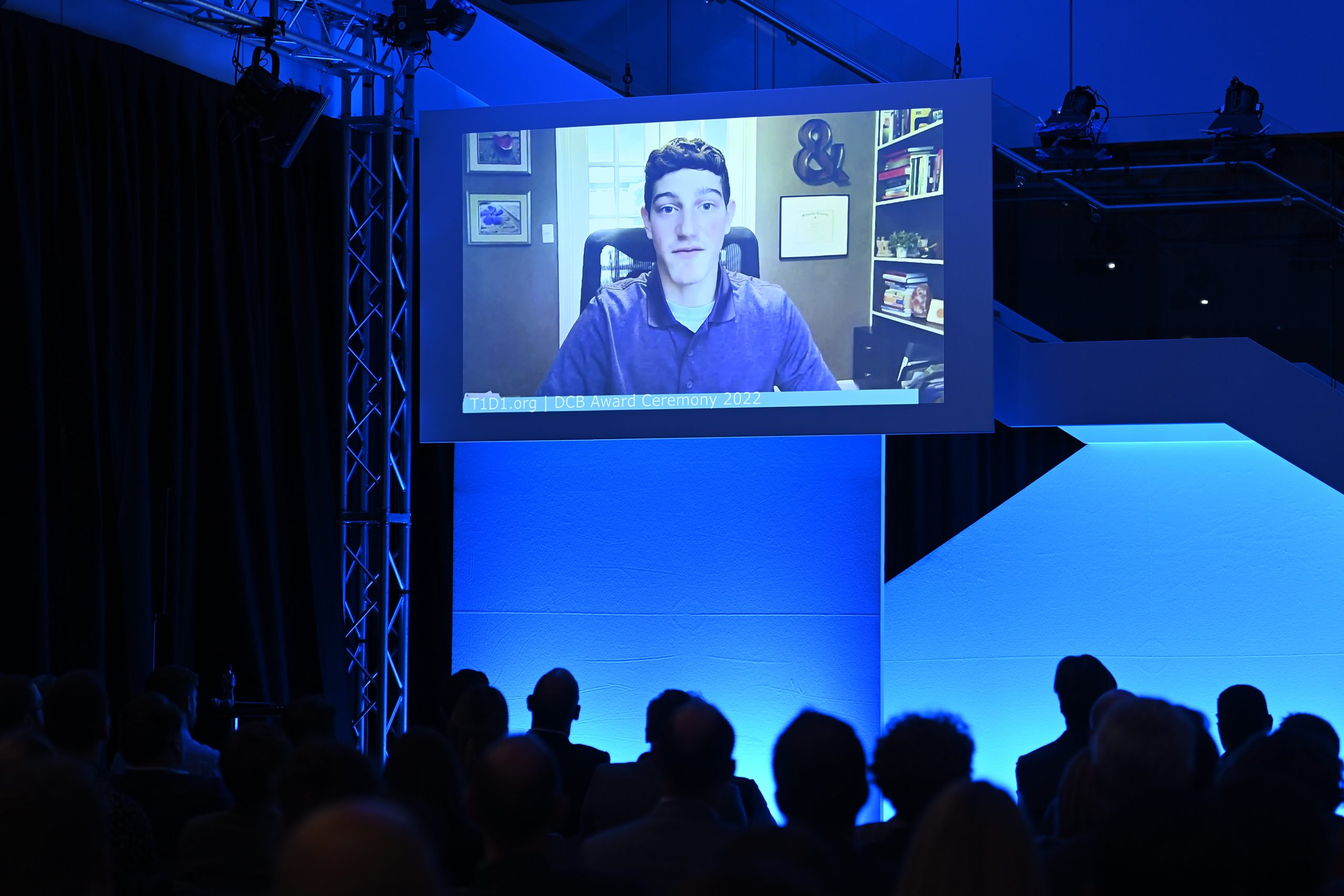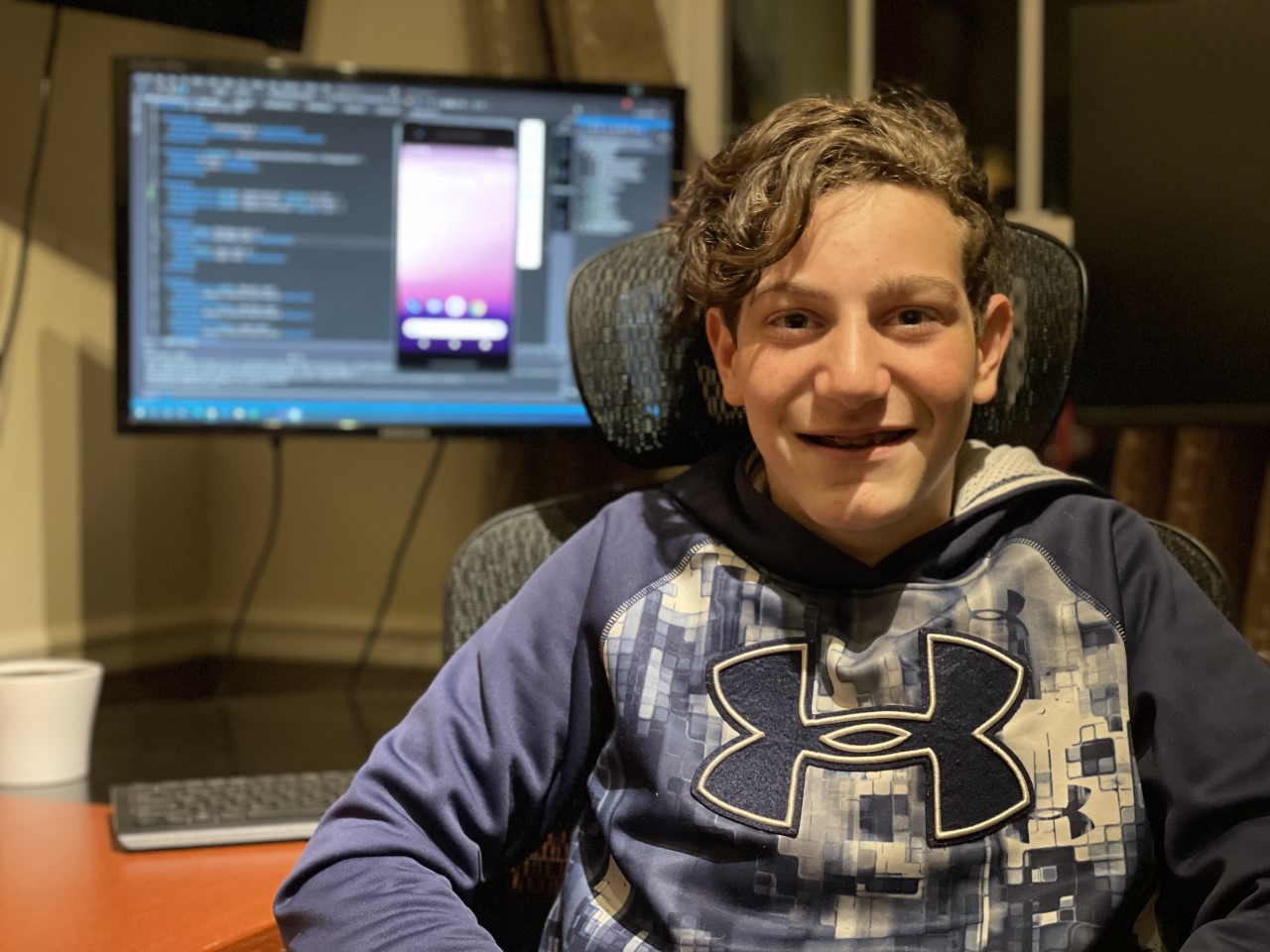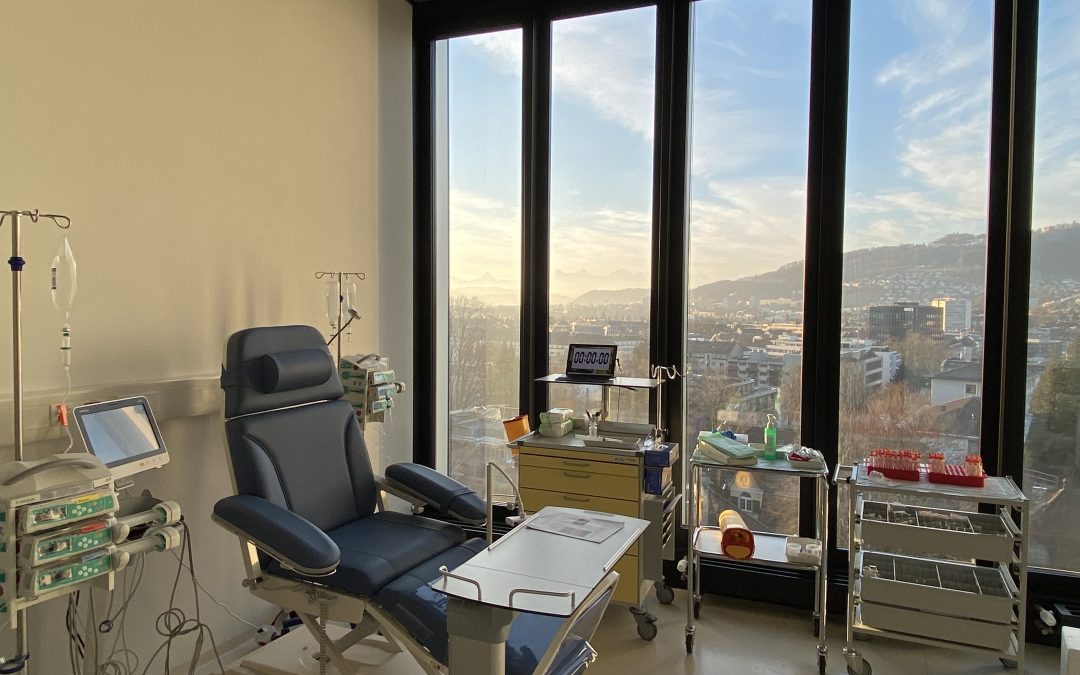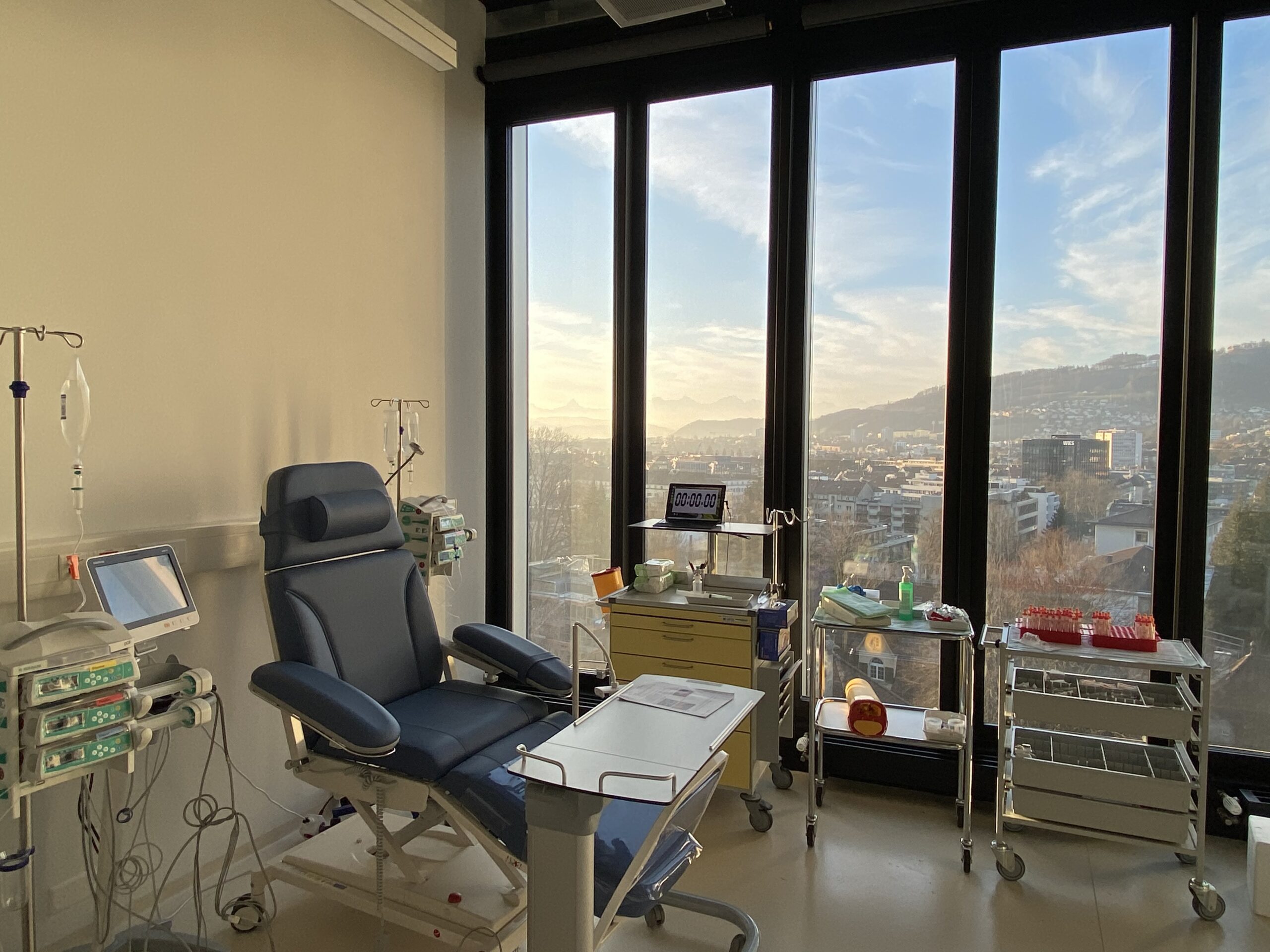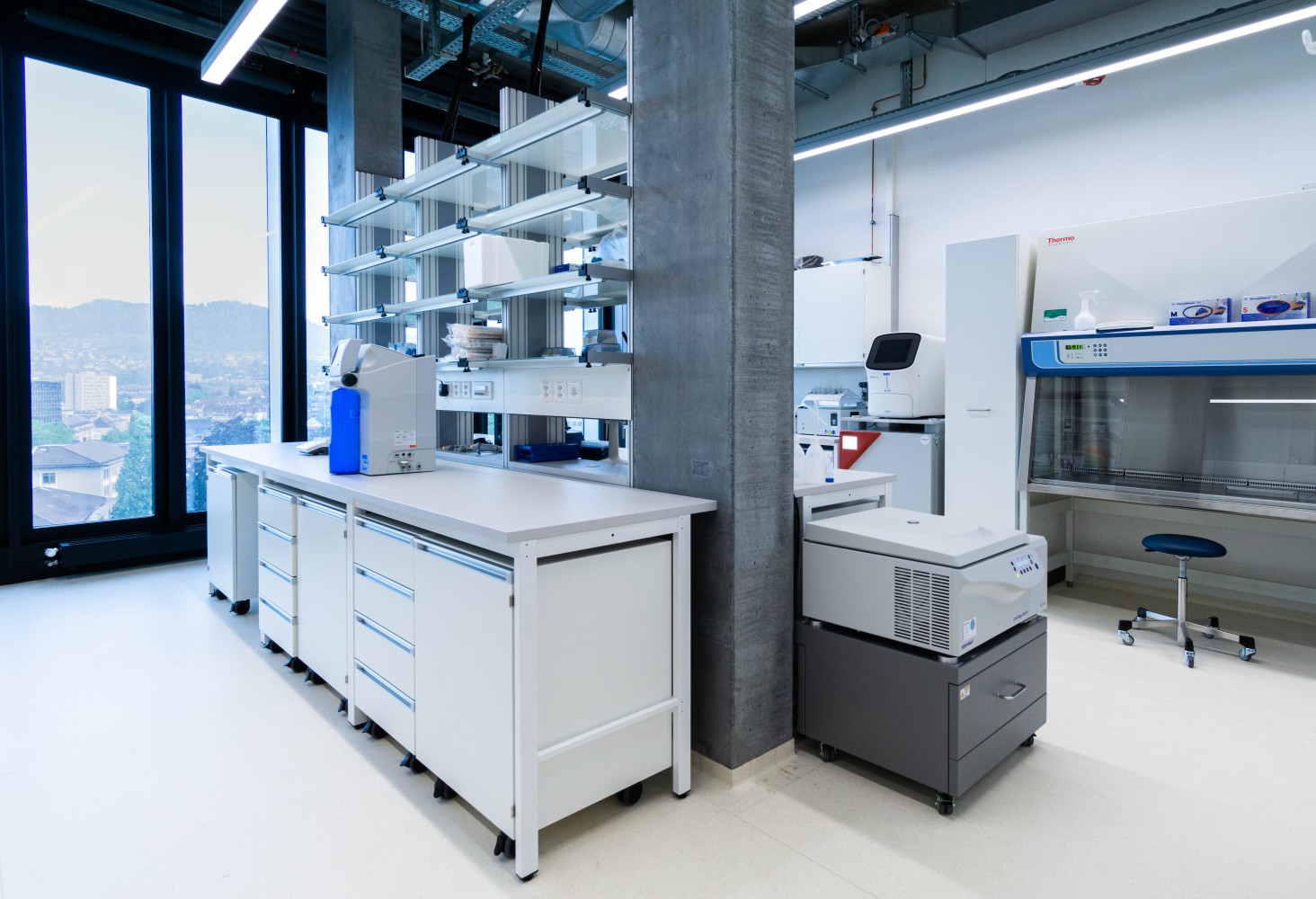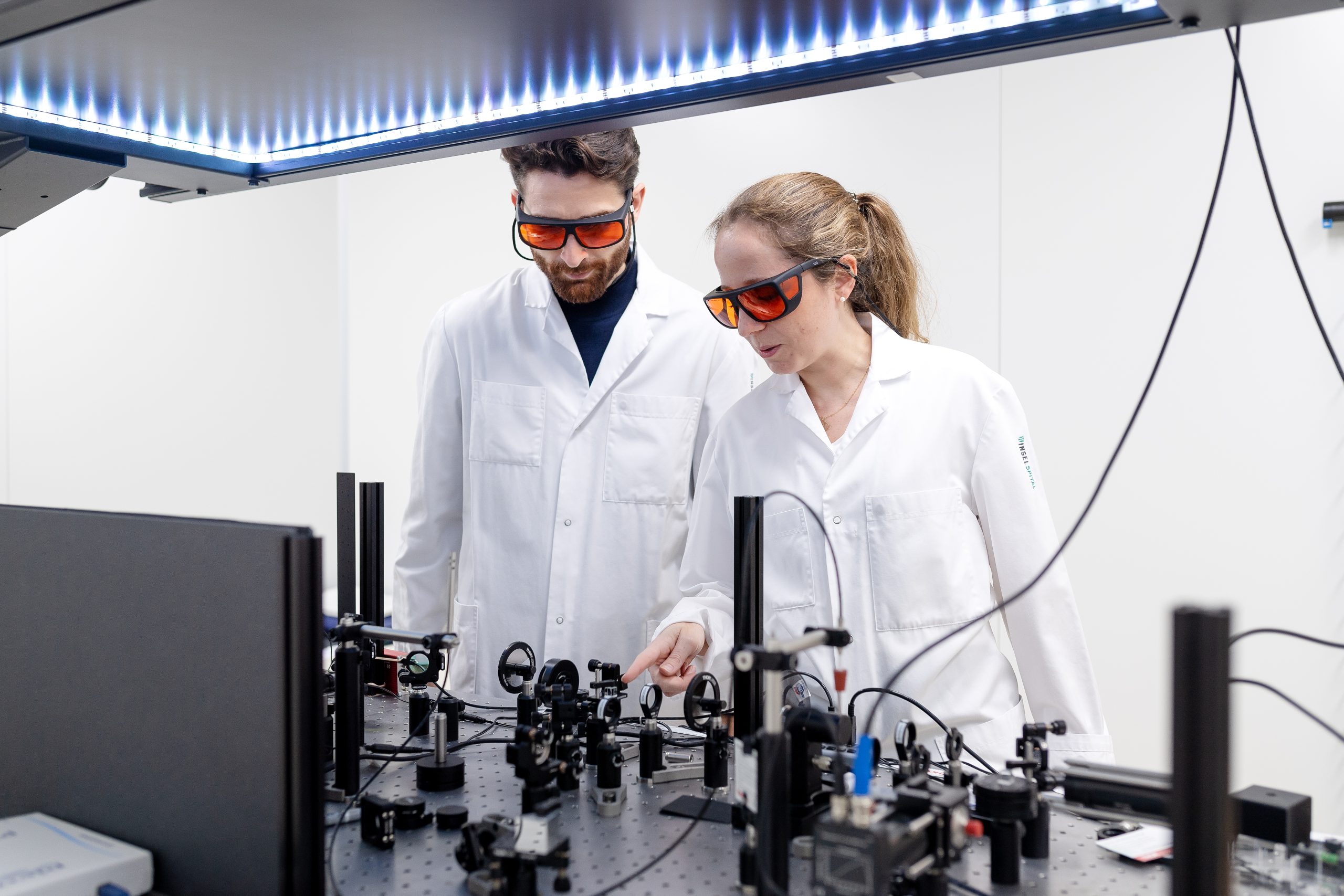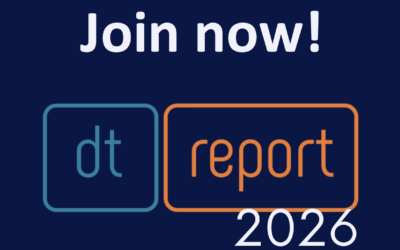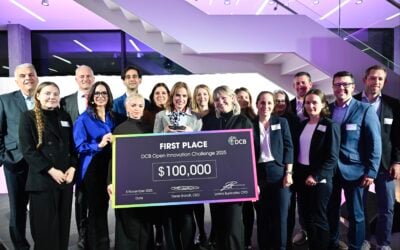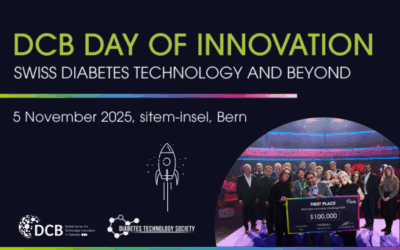Wir freuen uns, Ihnen die nächste Folge unserer Serie präsentieren zu können!Liebe Leserinnen und Leser, Im Rahmen des...
DCB Newsletter #4/23: INSIDE DCB – Interview with Prof. Lilian Witthauer
DCB Newsletter #4/23: INSIDE DCB – Interview with Prof. Lilian Witthauer
Dear Community,
We’re thrilled to present you with the next episode or our series „INSIDE DCB“ – this time, an interview with Prof. Lilian Witthauer. Enjoy the read!

Since 2021, Lilian Witthauer has been a professor specialising in sensor technology at the University Department of Diabetology, Endocrinology, Nutritional Medicine and Metabolism (UDEM) and at the DCB (Diabetes Center Berne). Together with her team, she researches innovative sensor technologies to improve the daily lives of people with diabetes.
Lilian, what is your research about?
My field of research is very interdisciplinary and includes both the scientific fundamentals of sensor technology and the clinical aspects of diabetes research. In particular, I focus on the development and improvement of sensors that enable people with diabetes to continuously measure blood glucose levels. An important aspect of my work is to make these sensors more accurate and reliable to enable automated insulin delivery. To achieve this goal, we redesign sensors, use different materials and optimise insulin delivery.
What motivates you to work in the field of diabetes technology? How did you get into it as a physicist?
What motivates me most is that people with diabetes can live better lives by having access to advanced sensor technologies that improve their healthcare and promote self-control and responsibility. I am involved in the field of diabetes technology as a physicist because I have always been interested in the application of physical principles and methods in medicine. As part of a changing society, diabetes is an important topic where there are still many opportunities for development.
What is your biggest challenge as a professor?
My biggest challenge as a professor is to find a balance between research, teaching and administration and to ensure that my team and I achieve our goals effectively and efficiently. This is not always easy, as I only have a short time for each individual task. It’s like I’m strategically managing a company, and at the same time I’m responsible for the operational implementation, while also taking care of the finances and IT.
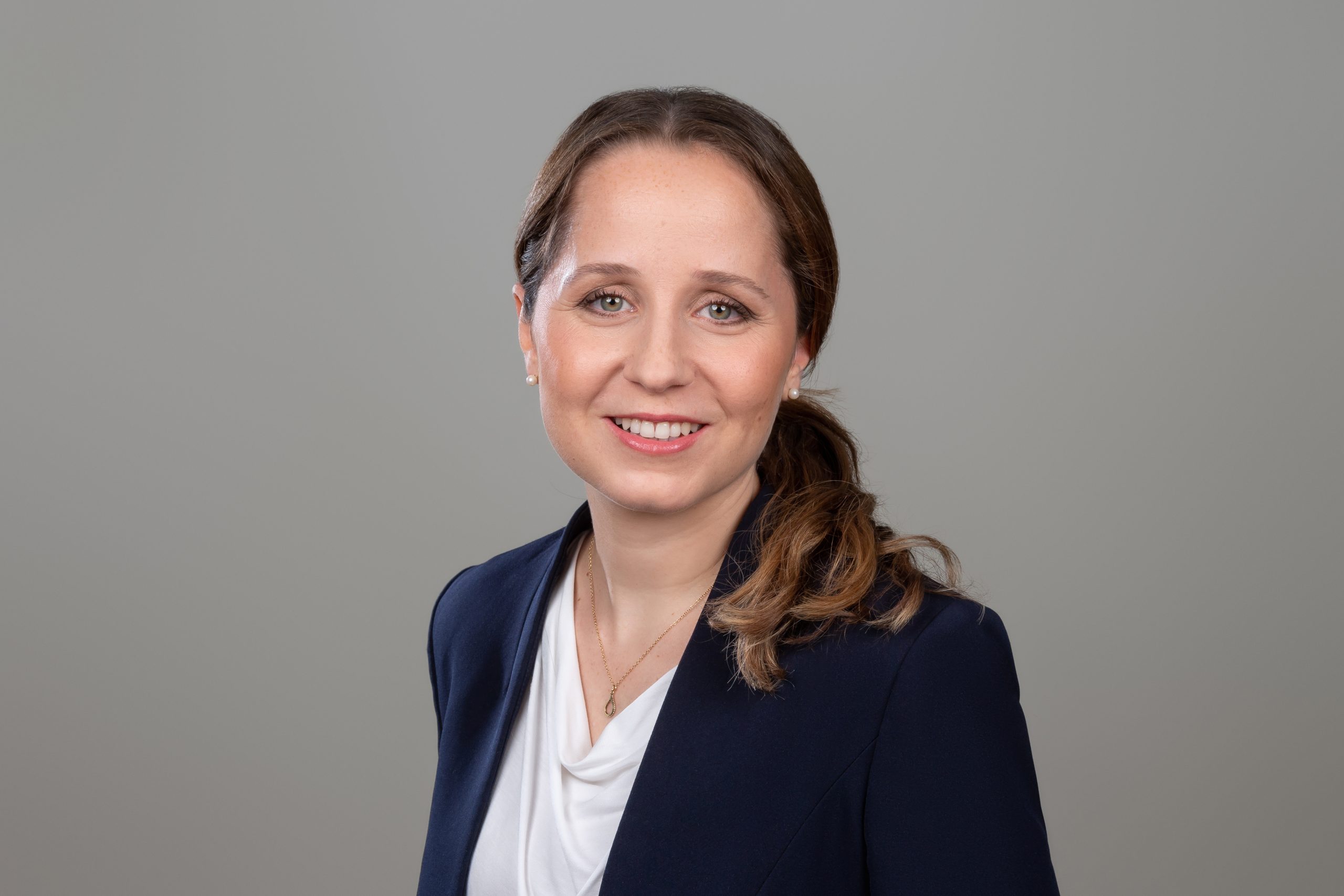
Professor Dr. Lilian Witthauer. Assistant Professor with Tenure Track in Diabetes Technology. Photo credit: Sandra Blaser
What goals do you want to achieve with your team and your laboratory, the samlab (Sensing and Monitoring Lab)?
In collaboration with my team and samlab, I am pursuing the goal of developing innovative sensor technologies that make everyday life easier for people with diabetes and improve their quality of life. In addition, we want to promote interdisciplinarity and closely link our research results with practice.
What projects are you currently researching and how can they make life easier for people with diabetes?
One of my current projects deals with the development of a sensor that measures the glucose level in the blood continuously and without delay. The instantaneous measurement is of special interest when the blood glucose level changes rapidly, during meals, sports, or stress. The glucose sensor is based on a light-based measurement method and therefore differs from existing sensors on the market.
Such a sensor could be worn longer and would allow for completely automated insulin delivery. This would reduce the number of decisions a person with diabetes has to make every day and thus improve the quality of life.
How do you work with the DCB?
The DCB offers a unique environment where I work closely with project managers and experts from the hospital, statistics and business environment. We have regular meetings and interdisciplinary working groups to coordinate our work and drive the development of innovative solutions. In addition, the DCB connects me with industry partners and start-ups, which is very important in my research field.
Where do you hope your research field will be in 5-10 years? What is your vision?
My vision is that in 5-10 years, a wide range of innovative sensor technologies will be available to make the daily lives of people with diabetes easier and improve their healthcare.
I hope that our research will help to make monitoring blood glucose levels easier and more accurate, and that people with diabetes will be able to make better decisions about their diet, exercise and insulin therapy based on real-time data.
About Lilian Witthauer
Lilian Witthauer is Assistant Professor of Diabetes Technology at the University of Bern and the Diabetes Center Berne (DCB). She studied physics in Basel, completed a Master of Advanced Studies in medical physics at ETH Zurich and graduated with a PhD in nuclear and particle physics from the University of Basel in 2015. Lilian Witthauer has done postdoctoral research in the development of optical sensors for navigation during surgery at the Department of Biomedical Engineering at the University of Basel and on oxygen sensors at Massachusetts General Hospital and Harvard Medical School in Boston (USA).
More about samlab: https://samlab.org
Dieser Beitrag wurde zuerst als Newsletter auf LinkedIn publiziert. Klicke hier um den Artikel auf LinkedIn zu lesen.
Neuigkeiten
DCB Newsletter #4/25: Stimmen aus der Gemeinschaft – treffen Sie das DCB Lived Experience Panel (Teil 3)
DCB Newsletter #3/25: Menstruationszyklus und Insulinbedarf
Wir freuen uns, Dir die nächste Folge unserer Serie "INSIDE DCB" präsentieren zu können!Forschung am Diabetes-Zentrum...
DCB Newsletter #2/25: Wusstest Du… dass es nicht kompliziert sein muss, mit Typ 1 Diabetes aktiv zu bleiben?
Liebe Community, für viele Menschen, die mit Typ-1-Diabetes (T1D) leben, kann körperliche Aktivität eine besondere...


